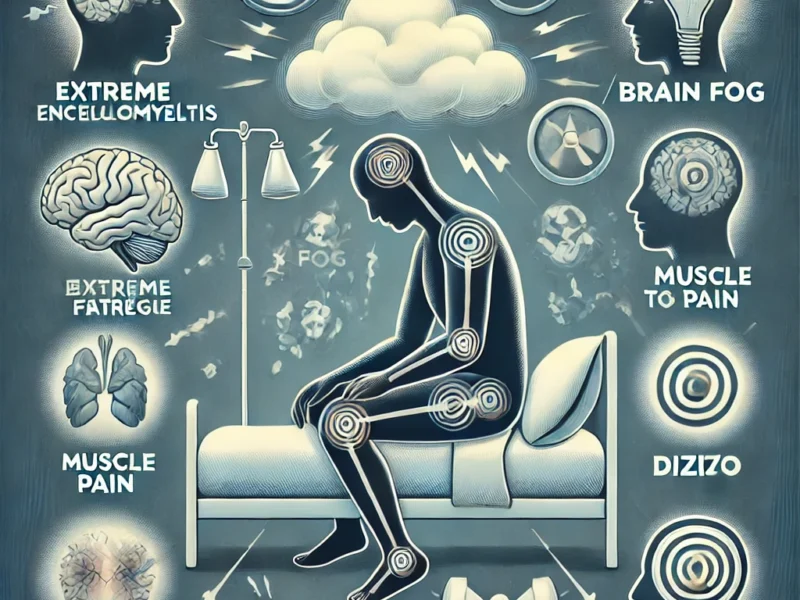
Endometriosis is a complex and often debilitating condition affecting millions of women worldwide. Characterized by the presence of tissue similar to the lining of the uterus growing outside the uterine cavity, endometriosis can cause severe pain, infertility, and a host of other symptoms that significantly impact quality of life. This article explores the causes, symptoms, diagnosis, and treatment options for endometriosis, providing a comprehensive overview of the condition and the hope that exists for those affected.
Understanding Endometriosis
What is Endometriosis?
Endometriosis occurs when tissue resembling the endometrium, which lines the inside of the uterus, starts to grow outside the uterus. Common locations for these growths include the ovaries, fallopian tubes, and tissues lining the pelvis. In rare cases, endometrial-like tissue may be found beyond the pelvic organs. These growths can lead to inflammation, cysts, scar tissue, and adhesions, causing severe pain and complications, especially during menstrual periods.
Symptoms of Endometriosis
The symptoms of endometriosis vary widely but often include:
- Painful periods (dysmenorrhea)
- Pain during intercourse
- Pain with bowel movements or urination
- Excessive bleeding
- Infertility
- Fatigue, diarrhea, constipation, bloating, and nausea.
Causes of Endometriosis
The exact cause of endometriosis remains unclear, but several theories have been proposed:
- Retrograde Menstruation: Menstrual blood flows backward through the fallopian tubes into the pelvic cavity instead of leaving the body.
- Embryonic Cell Transformation: Hormones such as estrogen may transform embryonic cells into endometrial-like cell implants during puberty.
- Surgical Scars: After surgeries such as a hysterectomy or C-section, endometrial cells may attach to the surgical incision.
- Immune System Disorders: Problems with the immune system may make the body unable to recognize and destroy endometrial-like tissue growing outside the uterus.
Diagnosis of Endometriosis
Diagnosing endometriosis can be challenging due to the variability in symptoms and their overlap with other conditions. Common diagnostic methods include:
- Pelvic Exam: A doctor manually feels for abnormalities.
- Imaging Tests: Ultrasound, MRI, or CT scans to visualize reproductive organs.
- Laparoscopy: A surgical procedure where a camera is inserted into the pelvic cavity to directly view and biopsy the endometrial tissue.
Treatment Options for Endometriosis
Medication
Pain Relief: Nonsteroidal anti-inflammatory drugs (NSAIDs) such as ibuprofen can help alleviate pain.
Hormonal Therapies: Hormonal treatments aim to reduce or eliminate menstruation, thereby reducing or eliminating the pain of endometriosis. Options include:
- Hormonal contraceptives (birth control pills, patches, vaginal rings)
- Gonadotropin-releasing hormone (GnRH) agonists and antagonists
- Progestin therapy
- Aromatase inhibitors.
Surgery
Surgical options are considered when medication is ineffective:
- Laparoscopy: The most common surgical approach where endometrial tissue is removed or destroyed.
- Hysterectomy: Removal of the uterus, with or without the ovaries, as a last resort for severe cases.
Alternative and Complementary Therapies
Some women find relief through alternative treatments such as acupuncture, herbal medicine, and dietary changes. It is essential to discuss these options with a healthcare provider to ensure they complement other treatments and do not interfere with prescribed medications.
Living with Endometriosis
Emotional and Psychological Impact
Endometriosis can significantly impact mental health, leading to depression, anxiety, and stress due to chronic pain and fertility issues. Support groups and counseling can provide emotional support and coping strategies.
Fertility and Pregnancy
Endometriosis is a leading cause of infertility. However, many women with endometriosis can still conceive. Treatments such as surgery to remove endometrial tissue and assisted reproductive technologies (ART) like in vitro fertilization (IVF) can improve the chances of pregnancy.
Hope for the Future
Research into endometriosis is ongoing, with studies focusing on better understanding the causes, improving diagnostic methods, and developing more effective treatments. Increased awareness and advocacy are also helping to reduce the stigma and provide better support for those affected by the condition.
FAQs on Endometriosis
Endometriosis is a chronic condition where tissue similar to the lining inside the uterus, known as the endometrium, begins to grow outside the uterus. This can cause pain, inflammation, and the formation of scar tissue, leading to various symptoms and complications (Mayo Clinic).
Common symptoms include:
Severe menstrual cramps
Chronic pelvic pain
Pain during or after intercourse
Pain with bowel movements or urination
Heavy menstrual bleeding
Fatigue
Infertility.
The exact cause is unknown, but several theories include retrograde menstruation, genetic factors, immune system disorders, and surgical scars. Hormonal changes are also thought to play a significant role in the development and progression of the disease.
Diagnosis often involves:
Reviewing medical history and symptoms
Pelvic examination
Imaging tests like ultrasound or MRI
Laparoscopy, a surgical procedure to view and biopsy endometrial tissue directly.
Treatment varies depending on the severity and symptoms but can include:
Pain relief with NSAIDs
Hormonal therapies (birth control pills, GnRH agonists, progestin therapy)
Surgical options (laparoscopy to remove endometrial tissue, hysterectomy)
Alternative therapies (acupuncture, dietary changes) (Mayo Clinic) (NewYork-Presbyterian) (Cleveland Clinic).
Yes, endometriosis is a leading cause of infertility. The condition can cause scar tissue and adhesions that interfere with the reproductive organs. However, many women with endometriosis can still conceive, often with the help of fertility treatments like in vitro fertilization (IVF) (Mayo Clinic) (NewYork-Presbyterian).
There is currently no cure for endometriosis, but various treatments can help manage symptoms and improve quality of life. Research is ongoing to find more effective treatments and possibly a cure in the future.
Chronic pain and fertility issues associated with endometriosis can lead to depression, anxiety, and stress. Support groups, counseling, and mental health therapy can be beneficial for those affected by the condition.
Lifestyle changes that may help include:
Regular exercise to reduce pain and improve overall health
A healthy diet rich in anti-inflammatory foods
Stress management techniques like yoga or meditation
Adequate sleep and rest
Yes, several organizations provide support and resources, including:
Endometriosis Foundation of America
Endometriosis UK
American College of Obstetricians and Gynecologists
For more detailed information and support, you can visit these organizations’ websites or consult with healthcare providers specializing in endometriosis.
External Resources
For more information on endometriosis, consider visiting the following resources:
- Mayo Clinic Endometriosis Overview
- FDA Office of Women’s Health
- Everyday Health Endometriosis
Endometriosis is a challenging condition, but with proper treatment and support, women can manage their symptoms and lead fulfilling lives. Remember, you are not alone in this journey. Reach out for help, educate yourself about the condition, and stay hopeful for the future.
For More Stay Tuned to Galleon

